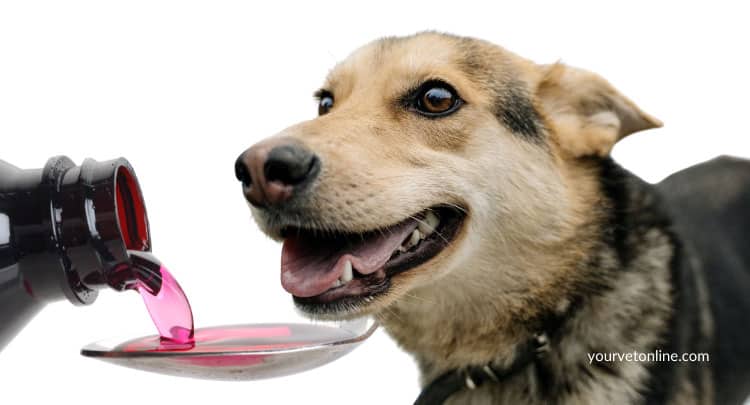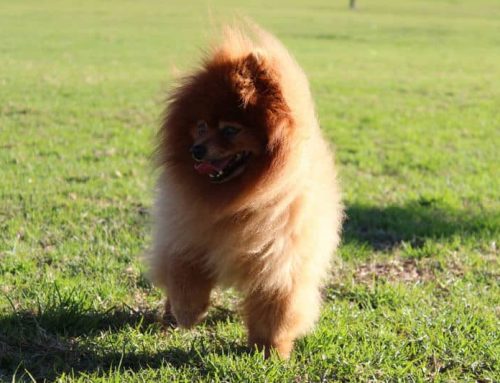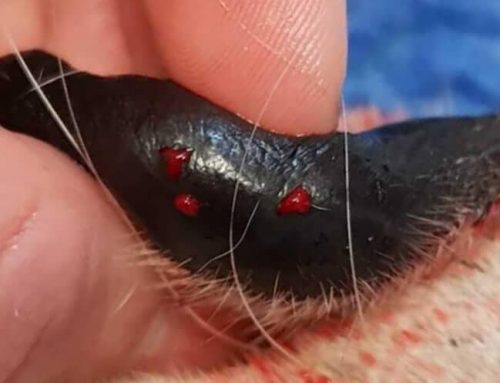How To Stop Kennel Cough In Dogs – Treatment & Prevention
Kennel cough (or canine infectious respiratory disease complex, formerly known as canine infectious tracheobronchitis) is a social dog disease most commonly seen in puppies and young dogs, although dogs of any age can be inflicted.
It is primarily caused by bacteria called Bordetella bronchiseptica and is spread through direct contact with infected animals or contamination due to fomites.
The most common symptoms include coughing, sneezing and nasal discharge. Fever is uncommon. Left untreated to run its course, kennel cough usually resolves within 5 days.
In this article, we will look at what causes kennel cough in dogs, how it’s treated and most importantly how we prevent it.

What Causes Kennel Cough?
Kennel cough is a highly contagious upper respiratory infection that is caused by a variety of pathogens, sometimes in combination.
The bacterium Bordetella bronchiseptica is the main causative agent, however canine parainfluenza virus (CPiV), canine adenovirus type 2, canine influenza, canine herpesvirus, canine respiratory coronavirus, Streptococcus zooepidemicus, and Mycoplasma spp. are often implicated.
It is uncommon for vets to perform diagnostic tests to identify the causative virus or bacteria, a diagnosis is usually made based on history and presenting signs.
The vast majority of dogs with kennel cough recover quickly with only mild disease, however, for some, particularly those with immunocompromise, a secondary infection may occur resulting in more severe disease such as pneumonia. Death is uncommon.
How Can I Tell If My Dog Has Kennel Cough?
The most common clinical sign that your dog might be infected is a nonproductive dry, hacking cough.
While the sound of the cough is very similar to that of a dog with tracheal collapse, the age of the dog will be a lot younger.
This dry cough often can have a high pitched sound due to swelling and inflammation of the larynx, tonsils and vocal cords.
Occasionally, your dog may also have a clear nasal discharge, suffer from loss of appetite and be a little more lethargic than normal.
You might notice your dog dry retching or gagging and some will vomit.
Any light palpation of the throat/tracheal area will more often than not, elicit a strong cough reflex.
The majority of dogs don’t have a fever and some animals will show few if any signs of disease, making it difficult to monitor case infection rates.
The following video gives examples of what dogs with kennel cough sound like at 1:04:
How Do Dogs Get Infected?
Kennel cough was aptly named as it is a disease that is commonly spread via close contact between dogs in crowded conditions.
It is most prevalent in young dogs whose immune system is still naive.
Dogs that are in close contact such as at puppy school, doggy daycare, boarding kennels, and playing rough and tumble at the park are most at risk.
Although known as “kennel cough”, disease transmission occurs readily wherever dogs meet or mix in common areas.
When dogs cough and sneeze micro-droplets containing the infectious agent are released into the air and will either land on a dog or on a surface contaminating it.
Sharing food and water bowls can therefore be a source of contamination.
The incubation period is between 2-10days, meaning a dog will start showing signs of illness 2-10 days after exposure.
Clinical signs can last from days to weeks – creating great distress to dogs and their owners
This provides evidence for a quarantine period of 10-14 days.
Once infected, most dogs show symptoms of kennel cough for around 5-14 days.
How Long To Isolate For
Incredibly, studies(1) have shown that an infected dog can remain contagious shedding infectious pathogens anywhere from 2 weeks to 3 months after being first infected. This can make management incredibly difficult especially in a shelter or boarding facility.
Because of this, it is highly advisable to prevent spread by keeping your dog at home avoiding contact with puppies, unvaccinated dogs and dogs with compromised immune systems such as those with disease or are old for at least 3 months.
Risk factors
High risk for contracting kennel cough include:
- Your dog spending time in crowded dog spaces or facilities i.e. doggy daycare
- Staying in moist, warm, and poorly ventilated environments (kennels, rescue shelters, boarding facilities)
- Exposure to people or equipment (water bowls) that have contact with a large number of dogs (vets, trainers, sitters, groomers, walkers)
- Stress or immunocompromise (travel, separation anxiety, illness such as cancer)
How To Prevent Kennel Cough
Protection against kennel cough is best provided by vaccination.
While vaccination doesn’t greatly reduce the risk of shedding and therefore transmission, it does help to lessen the severity of disease and shorten the period a dog shows clinical signs.
As described in the article on puppy vaccinations, pups are normally vaccinated twice, usually at their 2nd and 3rd vaccines dates.
This is then followed by a booster at one year of age.
Annual booster vaccinations are recommended, however, due to the contagious nature, if the risk for kennel cough is high such as when entering a boarding kennel or attending training classes, then it is recommended to vaccinate 10 days prior to entry.
There are two types of vaccine:
- injectable
- intra-nasal
The immune response to the intranasal vaccine invokes a high IgA response in the nasal mucosa – this makes sense as this is where transmission first occurs.
Injectable vaccines produce a systemic increase in IgG.
There is no reliable evidence that says that either type of vaccine is more efficacious(2) than the other, however, there is an argument for dogs entering high-risk situations, they may be better protected by an oral or nasal vaccine.
Available Vaccines
Nobivac Kc: Subcutaneous vaccine. Inactivated Bordetella bronchiseptica antigen, inactivated canine parainfluenza virus.
Protech C4: given subcutaneously. Live attenuated canine parainfluenza virus (and other ingredients: Live attenuated canine distemper virus, live attenuated canine adenovirus type 2 (infectious hepatitis), live attenuated canine parvovirus).
Protech Pi2: subcutaneous injection. Canine parainfluenza virus.
Protech BB: subcutaneous injection. Bordetella bronchiseptica.
Protech Bronchi-Shield® Oral: Oral mucosa. Bordetella bronchiseptica.
Protech Bronchi-Shield® III: Oral mucosa. Bordetella bronchiseptica, canine parainfluenza virus, canine adenovirus type 2.
Vanguard B Oral: Oral mucosa (buccal pouch). Bordetella bronchiseptica.
Duramune Adult C4: Injectable. Canine parainfluenza virus (as well as: canine parvovirus, canine distemper virus, canine adenovirus type 1 (infectious canine hepatitis), canine adenovirus type 2).
Treatments And Home Remedies For Kennel Cough
As noted previously and just like when we have a common cold, the vast majority of dogs with mild symptoms do not require any treatment with the disease being allowed to run its course.
The use of antibiotics, antivirals and antitussives is quite controversial.
Antibiotics
Antibiotics will not be effective if the primary agent is viral, although may be of use if secondary bacterial infections occur with more severe disease.
As mentioned by Dr Leigh in the video above, doxycycline is a common antibiotic used. It also has anti-inflammatory properties that may also help.
Antiviral Medications
Antivirals have not been shown to be effective against kennel cough.
Cough Suppressant Medication
Over-the-counter products are often a mix of dextromethorphan and guaifenesin.
Dextromethorphan is an antitussive drug used to help relieve constant coughing while guaifenesin is an expectorant that loosens mucus making it easier to expel.
Veterinary prescribed products often contain codeine, however, this is a restricted medication.
It can be tempting to use a human cough suppressant, however, care is required.
- Always check to make sure that the medication does not contain Xylitol, a common additive that is highly toxic to dogs
- If a cough is productive then this can potentially prolong and exacerbate infection due to the dog being unable to clear phlegm and secretions.
Always check with a vet if you would like to use a cough suppressant.
At-home remedies
To help you and your dog get through this period the following interventions can assist:
- reduce exercise and excitement as this can bring on coughing fits.
- For those with a lack of appetite, warming the meal or dribbling meat juices over the top may encourage eating and act to soften the food to make it more palatable to a sore throat.
- If in a dry, cold environment, moisten the air to help keep respiratory secretions moist. This can be achieved with nebulisers, or spending time in the bathroom with you while showering with the window/vents closed.
- a tablespoon of honey with a squeeze of lemon is often recommended and may assist soothing the throat. Remember this is ‘liquid sugar’ being high in fructose, so care especially if a dog has diabetes.
When To Call The Vet
If you notice that your dog is showing any of these signs then it’s best to contact a vet for further advice:
- lethargic
- has gone off their food
- is displaying more effort when breathing
- shows intolerance to moderate exercise
- has a productive cough
- has severe nasal discharge
It’s worthwhile keeping a record of your dog’s vital signs so that you can communicate these to a vet.
Due to the contagious nature of kennel cough, many vets will likely perform a telemedicine consult in the first instance to determine whether an in-person exam is required.
It can be very helpful to take a video of your dog’s coughing prior to these consults so that you can share with the vet.
If your vet recommends further diagnostics such as xrays, then they will advise on a protocol so that their hospital is not contaminated.
Our vets are available 24/7 if you’d like to speak to them about your dog.
Frequently Asked Questions
Can French Bulldogs and other brachycephalic breeds get the intra-nasal vaccine?
There is no evidence to suggest that French Bulldogs or other brachycephalic breeds suffer from a higher rate of ill effects after intranasal vaccination. It is one of life’s greatest myths.
Is coconut oil a good treatment for coughing dogs?
There is currently no evidence to suggest that coconut oil provides any treatment benefit for a coughing dog. While coconut oil may have some antibacterial and antiviral properties, it is unknown how much is required to achieve an effect.
Of more concern is that the fat component of coconut oil may cause some dogs to develop pancreatitis.
(1) Infectious Disease Management in Animal Shelters. (2009). United Kingdom: Wiley.
(2) Ellis, J. A., Gow, S. P., Lee, L. B., Lacoste, S., & Ball, E. C. (2017). Comparative efficacy of intranasal and injectable vaccines in stimulating Bordetella bronchiseptica-reactive anamnestic antibody responses in household dogs. The Canadian veterinary journal = La revue veterinaire canadienne, 58(8), 809–815.




In addition to home remedies mentioned above cinnamon, coconut oil, aromatherapy, and rose hips can be used to treat kennel cough in dogs.
https://healthlinkeg.com/home-remedies-for-kennel-cough/